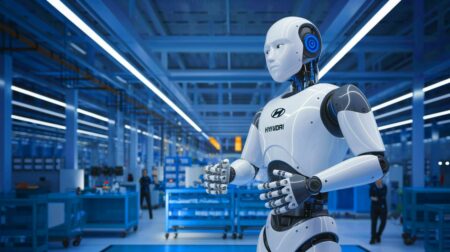| IN A NUTSHELL |
|
The world of robotics and gastronomy has collided in a groundbreaking way with the introduction of RoboCake. This revolutionary creation, which resembles a delectable dessert, is more than just a treat for the taste buds. Designed as part of the EU-funded RoboFood project, RoboCake is a fusion of advanced robotics, culinary arts, and sustainability. This edible robot, with its syrup and fondant layers, not only satisfies hunger but also dazzles with its ability to dance, blink, and operate on edible batteries. Showcased at Expo 2025 in Osaka, RoboCake is the brainchild of collaboration among researchers, food scientists, and pastry chefs. This innovation pushes the boundaries of what food and technology can achieve together.
RoboCake: The Intersection of Robotics and Culinary Arts
At the heart of RoboCake are two teddy bear robots, both fully edible and animated. Created from gelatin, syrup, and colorants, these bears come to life via an internal pneumatic system. When air is injected through specially designed pathways, the bears move their heads and arms, providing an enchanting spectacle. As EPFL researcher Bokeon Kwak explains, these bears taste like pomegranate gummies, combining robotics and delightful flavors seamlessly.
According to Dario Floreano, director of EPFL’s Laboratory of Intelligent Systems and coordinator of RoboFood, merging robotics and food can yield significant benefits, such as reducing food and electronic waste. This convergence has led to a world-first innovation: edible rechargeable batteries. These batteries, built with vitamin B2, quercetin, activated carbon, and dark chocolate, power the glowing LED candles on the cake, showcasing the potential of this new frontier.
Edible Batteries: A Solution to E-Waste
Beyond their culinary appeal, the edible batteries in RoboCake offer a potential solution to the global e-waste crisis, which amounts to over 40 million tons annually. By making sensors, power sources, and robotic systems edible, single-use technologies could become biodegradable and even delicious. The applications for such innovations extend far beyond dining experiences.
Imagine edible robots that carry food or medicine into disaster zones, deliver nutrients to patients with swallowing difficulties, or monitor food freshness through digestible sensors. These possibilities are just the beginning of what technologies like RoboCake could achieve. However, technical prowess alone is insufficient for success; the taste must also be extraordinary. This is where the expertise of award-winning pastry chef Julien Boutonnet from the École Hôtelière de Lausanne comes into play, blending engineering precision with indulgent flavors to create an interactive, edible performance.
The Culinary Challenge: Merging Science and Taste
Creating RoboCake was no simple feat. The team faced the challenge of highlighting the scientific achievements from EPFL and IIT while ensuring the dessert remained delicious. Under the guidance of Julien Boutonnet, the team crafted a dessert that harmonized electronics, technique, and taste. This creation not only delights the palate but also interacts with consumers, offering a performance that engages multiple senses.
Floreano suggests that edible robotics could also influence eating behaviors by slowing down the interaction with food, potentially helping to reduce overeating. As food becomes interactive and intelligent, it gains value, decreasing the likelihood of waste. This shift in perception is just one way RoboCake could impact the future of both food consumption and technology.
The Future of Edible Robotics
The edible robotics platform presented by RoboCake may pave the way for new innovations in both the culinary and technological fields. By transforming food into an interactive experience, this technology encourages consumers to appreciate their meals more, potentially reducing waste. The potential applications extend far beyond dining, offering solutions in healthcare, disaster response, and food preservation.
As RoboCake continues to inspire awe at Expo 2025, the question remains: how will the integration of robotics and gastronomy revolutionize our approach to food and technology in the coming years?
Did you like it? 4.5/5 (29)








This is absolutely mind-blowing! 🤯 How does it taste though?
Are the edible batteries safe for everyone, including kids and pets?
RoboCake sounds like a future episode of Black Mirror! 😂
Can you really eat the entire robot, or are there non-edible parts?
I’m all for innovation, but I’m skeptical about the practicality. What do you think? 🤔
What happens if the cake malfunctions mid-performance? 😬
Thank you for pushing the boundaries of what’s possible in both food and tech! 🙌
How do they manage to blend flavors with robotics? That’s insane!